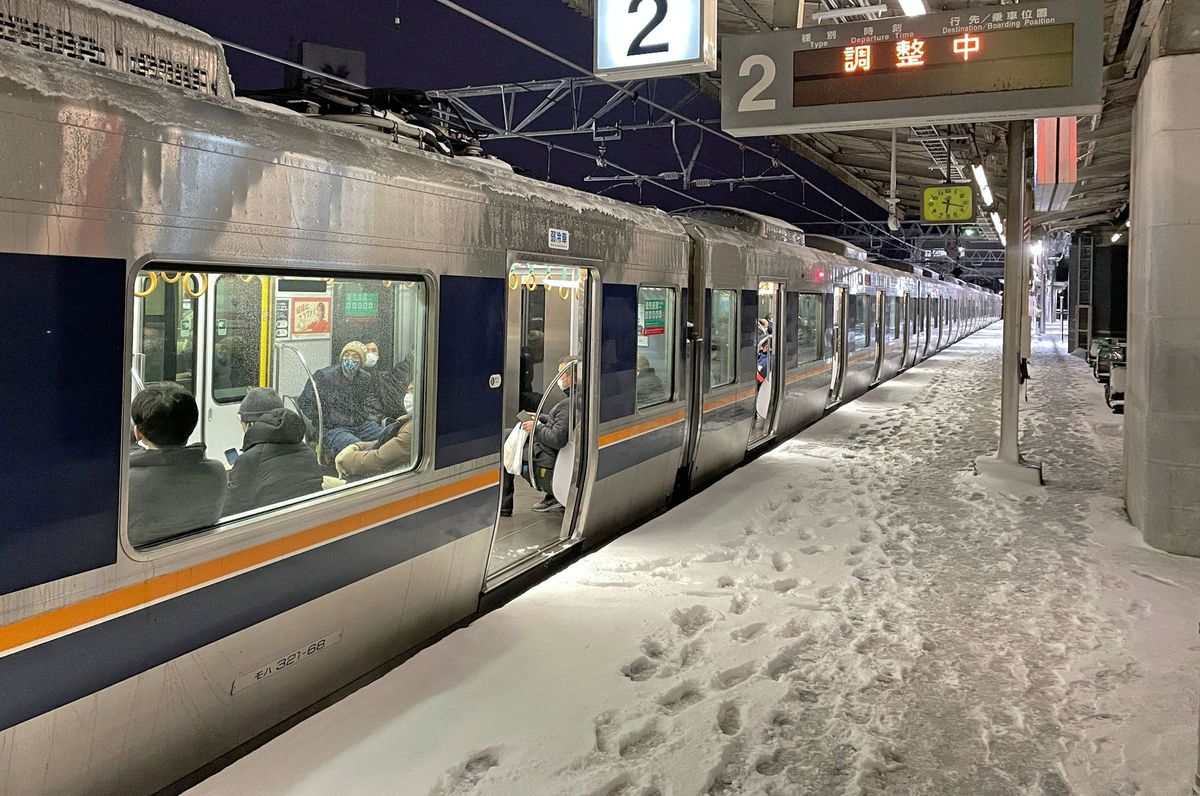Record low temps are affecting much of Asia
This past year has been a whirlwind of strange weather and climate events.

A few minutes every morning is all you need.
Stay up to date on the world's Headlines and Human Stories. It's fun, it's factual, it's fluff-free.
The backstory: This past year has been a whirlwind of strange weather and climate events. Much of Asia experienced a major heat wave and drought last summer, plus wildfires bombarded Europe. The wild weather events are likely to continue as we see the results of climate change.
More recently: Over the past couple of years, there’s been record melting of Arctic ice caps. And, as the sea takes on more liquid, more water vapor is in the air, and more snowfall is expected. El Niño and La Niña climate pattern cycles in the Pacific Ocean also affect weather worldwide and are influenced by climate change.
The development: Now, in Japan, China and Korea, we’re seeing an extreme cold wave. Low temps have been consistent over the past two weeks in parts of Asia, with northeast China experiencing record lows of -53 Celsius. Authorities in Japan and Korea have issued warnings over freezing temperatures and winds. One person has died, and thousands of others have found themselves stranded at train stations, on the roads and in airports. The cold is expected to continue through the end of the month.
Key comments:
“There has been a record melting last year and this year,” said Yeh Sang-wook, a climate professor at Hanyang University in Seoul. “When sea ice is melted, the sea opens up, sending up more vapor into air, leading to more snow in the north.”
“We can consider this extreme weather – extremely hot weather in summer and extremely cold weather in winter – as one of the signals of climate change,” Korea’s Meteorological Administration spokesperson Woo Jin-kyu told CNN.




Comments ()